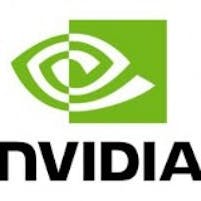NVIDIA Corporation (NASDAQ:NVDA) has fallen in price over the last year against a rising market, as flat financials have been compounded by concerns about the declining PC industry (the company provides components, most notably graphics processors, for personal and mobile computing devices). In the fiscal year ending in January 2013, NVIDIA Corporation (NASDAQ:NVDA) actually managed 7% revenue growth compared to the previous fiscal year, though higher operating expenses left the company with flat pretax income (and then a higher effective tax rate causing a decline in reported earnings). Cash flow from operations also decreased.
At a market capitalization of $7.8 billion, NVIDIA Corporation (NASDAQ:NVDA) trades at 14 times trailing earnings. If the company were growing its earnings, that might be cheap enough for it to be worthy of consideration as a value stock; however, we’ve seen that the business has been struggling and we’d expect that to continue as the PC industry likely declines further. Wall Street analysts, who are notoriously bullish about nearly everything, expect EPS to decline over the next couple years and as a result the forward P/E is 16. We would note that a large share of Nvidia’s value is cash, with over $3.7 billion in cash, cash equivalents, and marketable securities. As a result, the valuation does look a bit better in cash flow terms with an EV/EBITDA multiple of 5.0x.

The two closest peers for Nvidia are Advanced Micro Devices, Inc. (NYSE:AMD) and Intel Corporation (NASDAQ:INTC), which provide processors and graphics cards for PCs. Advanced Micro Devices, Inc. (NYSE:AMD) is unprofitable on a trailing basis, and consensus forecasts from the Street call for negative earnings this year and in 2014 as well. 15% of Advanced Micro Devices, Inc. (NYSE:AMD)’s float is held short, a much higher figure than what we see at Nvidia. With barely any EBITDA either, we don’t think that it is a good stock to buy right now. Intel Corporation (NASDAQ:INTC)’s net income decreased by 27% in its last quarterly report compared to the fourth quarter of 2011, though revenue was down only 3%. The stock is at least cheap, with a trailing P/E of 10, and at current prices and dividend levels it pays a dividend yield of 4.2%. We wouldn’t recommend Intel Corporation (NASDAQ:INTC) as a value stock until the company was able to stabilize its earnings, but income investors might consider it.
We can also compare Nvidia to Dell Inc. (NASDAQ:DELL) and Hewlett-Packard Company (NYSE:HPQ), who are similarly hurt by weak PC sales. EV/EBITDA multiples at these companies are in the 4-5 range, so on that basis they are at least as cheap as NVIDIA Corporation (NASDAQ:NVDA). Dell Inc. (NASDAQ:DELL) is currently a battleground between founder Michael Dell, billionaire activist Carl Icahn, and private equity fund Blackstone; at current levels the stock does not have much upside to Dell Inc. (NASDAQ:DELL)’s or Blackstone’s offer but in theory Icahn’s own offer could encourage them to increase their bids. However, we aren’t sure it’s wise to speculate on M&A even with three separate offers likely reducing the downside. Hewlett-Packard Company (NYSE:HPQ) recorded a 16% decline in net income in its most recent quarter compared to the same period in the previous fiscal year, with sales down 6%, but the forward P/E is only 6. So we think that if the company can limit the fall in its earnings- it can see earnings per share decline, just at a slower rate- it will look like a good value prospect.
In fact, HP might be the most intriguing of these companies simply due to how cheap it is (though it might be best to wait for more results). While NVIDIA Corporation (NASDAQ:NVDA)’s large cash position prevents us from suggesting a short, the valuation multiples look high considering the general state of the industry, not particularly encouraging earnings numbers, and pessimistic sell-side forecasts.
Disclosure: I own no shares of any stocks mentioned in this article.

